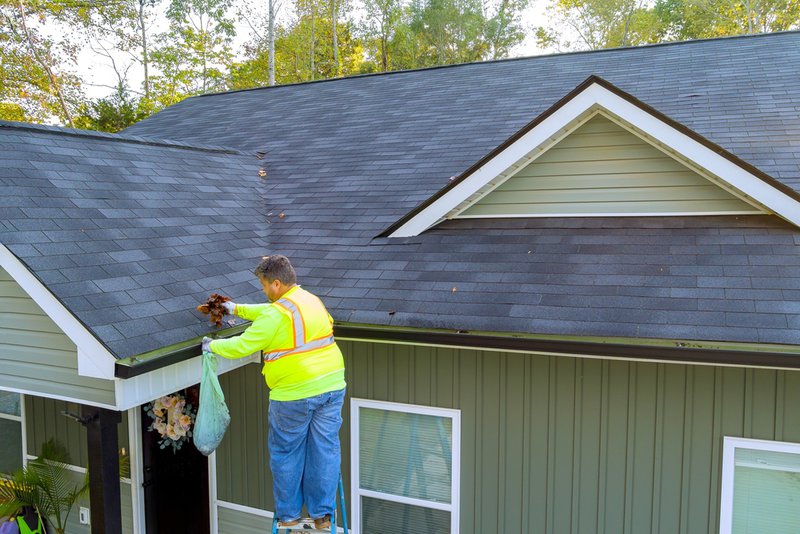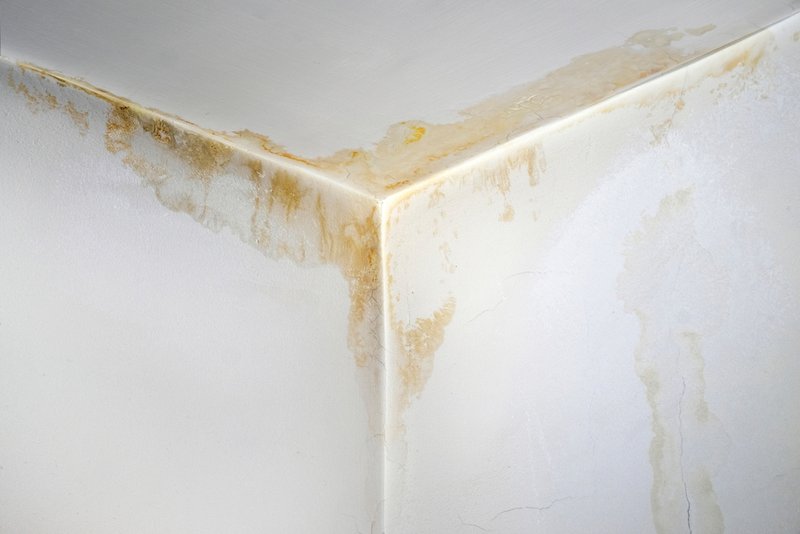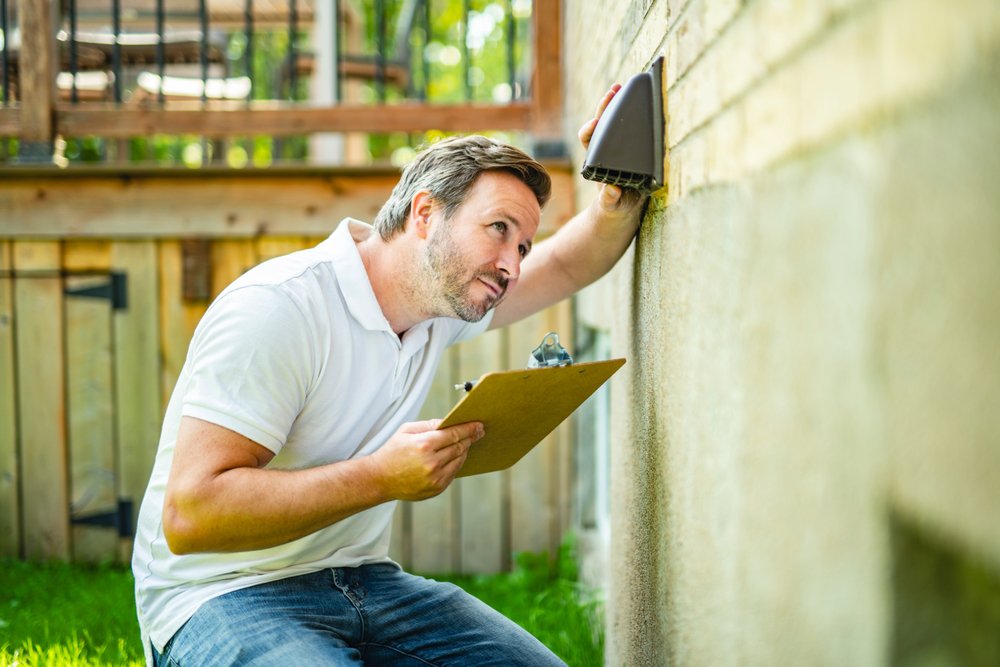Seasonal maintenance is more than a to-do list—it’s the first line of defense against property damage claims. Each season brings its own challenges that can strain even the most well-built commercial and residential properties. Staying ahead with a proactive maintenance routine helps reduce risk, control costs, and lower the chances of a claim being denied, delayed, or severely underpaid.
Let’s break down what seasonal property maintenance looks like—and how it helps reduce the frequency and severity of property damage claims.
Fall Maintenance Checklist
As temperatures drop, the risk of water intrusion increases. Preventative care during the fall can reduce the likelihood of water damage claims—one of the most frequently underpaid or denied loss categories.
- Clean Gutters and Downspouts: Leaves and debris cause backups that lead to microbial contamination and structural water damage.
- Inspect Roofing: Address missing or cracked shingles and flashing that could lead to winter leaks.
- Evaluate Drainage: Ensure the property’s grading moves water away from the foundation.
- Test Sump Pumps: If your property uses a sump pump, make sure it is functional and clean the battery back-up installed and working before the rainy season.
Public insurance adjusters certified by the IICRC in water damage and structural drying can identify red flags early and recommend strategies that align with policyholder responsibilities.

Winter Maintenance Checklist
Freezing temperatures amplify risks like ice damming, pipe bursts, and structural issues. Regular inspections are critical for preventing damages often excluded or contested by insurance carriers.
- Insulate Pipes and Attics: Prevent freezing that leads to pipe bursts and subsequent water damage.
- Check Heating Systems: HVAC breakdowns can trigger claims related to indoor environmental conditions.
- Remove Snow Accumulation: Heavy snow and ice buildup on roofs can compromise structural integrity.
- Inspect Weather Stripping and Windows: Reduce drafts and water intrusion during winter storms.
Routine winter prep is an opportunity to ensure compliance with policyholder duties post-loss. Insurers often cite neglect as a reason for denying property damage claims.
Spring Maintenance Checklist
Spring thaw reveals hidden winter damage and presents new risks. This season is ideal for catching water issues before they spiral into larger problems.
- Test HVAC Systems: Service and inspect systems to maintain efficiency and prevent heat-related breakdowns.
- Inspect for Pooling Water: Identify improper drainage or grading issues.
- Clean Gutters (Again): Debris from early spring storms can obstruct flow and create backup risks.
- Assess Foundation for Cracks: Freeze-thaw cycles may have created foundation vulnerabilities.
Policyholders are required to mitigate further damage after a loss. An adjuster trained in water damage and structural drying can ensure these tasks meet that standard.
Summer Maintenance Checklist
High temperatures and increased property usage can lead to equipment breakdowns and exterior wear.
- Pest Prevention: Insects and rodents can cause wiring and structural damage.
- Check Irrigation Systems: Overwatering and leaks can undermine foundations and landscaping.
- Inspect Outdoor Equipment: Pools, grills, and HVAC units need seasonal tune-ups to avoid system failures.
- Monitor Fire Hazards: Clean dryer vents, store flammable materials properly, and trim dry vegetation.
Summer-related property damage claims are often dismissed as “wear and tear,” which carriers use as grounds for denial. Preventative maintenance offers leverage in those disputes.
Review And Update Policy Coverages
Make sure your policy includes Ordinance & Law coverage, which helps cover the additional cost of repairs required when building codes are updated. Also consider adding Sump Pump coverage, which protects against water damage to finished or unfinished basements if the sump pump fails or there's a power outage during a storm. Without these additional coverages, you may have to pay out of pocket for costly repairs.
Insurance Companies and the Claims Game
Understanding how insurers approach property damage claims is essential. According to author David Skipton (The Claims Game), many insurers employ delay tactics or deny claims outright under vague or selectively enforced policy language. This has real consequences for property managers trying to protect their assets.
Even legitimate claims are often underpaid. In his book Pay Up!, author Chip Merlin emphasizes that many insurers expect property owners to simply accept the initial offer without question. This is where engaging a public adjuster can change the outcome dramatically.
The Cost of Neglect
Delayed maintenance doesn’t just increase repair costs; it can jeopardize your coverage entirely. Many insurance policies have fine print that allows carriers to deny property damage claims due to "lack of maintenance" or "failure to mitigate further damage."
Routine upkeep acts as a compliance measure. When insurance adjusters come out to evaluate a loss, documented maintenance can mean the difference between approval and denial. The more effort you put into documenting preventative care, the more likely you are to secure a fair and timely payout.

The Value of a Public Adjuster
Public insurance adjusters are not affiliated with your insurance company. Their only job is to advocate for you, the policyholder. That distinction matters when it comes to filing property damage claims that require precision, documentation, and policy fluency.
The National Association of Public Insurance Adjusters (NAPIA) underscores the importance of third-party advocacy, especially when claims involve high-value equipment, commercial structures, or extensive damage.
Having a licensed adjuster on your side can help with:
- Accurate scope of loss evaluations
- Detailed proof of loss submissions
- Communications with insurers and their adjusters
Long-Term Benefits of Proactive Maintenance
Insurers frequently reward proactive maintenance with favorable underwriting. More importantly, it creates a paper trail that positions property managers to fight back when insurers underpay or deny claims.
Consider the findings of the National Association of Insurance Commissioners (NAIC) and the American Policyholder Association (APA), which consistently highlight the imbalance in how claims are handled. With the right support and documentation, you can rebalance the scales.
Preventative care improves asset longevity, reduces emergency repairs, and streamlines the claims process. It also supports claim values by demonstrating compliance with all post-loss policyholder obligations.
Safeguard Your Investment
Insurance companies delay, deny, and underpay claims every single day. Proactive seasonal maintenance empowers you to fight back. Whether you manage a hospital campus, an apartment complex, or a commercial facility, these checklists can protect your investment from seasonal risks and aggressive insurer tactics.
Schedule a call for a free claim and policy review today. Our team is certified through the IICRC in Water Damage, Structural Drying, Fire Damage, and Smoke Damage, and we're here to help you navigate your next claim with confidence.
Claim Services We Provide
Velocity Public Insurance Adjusters handles a variety of claim types for both commercial and residential property losses: weather-related damage, theft and vandalism, fire and smoke damage.
Members of
Velocity Public Insurance Adjusters is a Certified Firm with the IICRC.
IICRC Certified Firms are known for their high level of technical experience and professionalism.
With the rapid increase in consumer calls due to the demand for mitigation and restoration projects,
Certified Firms are working in the field every day and have unmatched expertise in complex restoration projects.
Client testimonials
Don't take our word for it, see what our clients are saying about us.
Contact us
Schedule a free, no-obligation, claim and policy review. Every property claim is different, and we'd like the opportunity to provide you with an assessment of your unique situation.
- Indiana
- Kentucky
- Michigan
- Ohio
- Iowa
- Wisconsin
- South Carolina
Use of Information Purpose: We use your information to send mobile messages and respond to your inquiries as necessary. This may involve sharing your information with platform providers, phone companies, and other vendors who assist in message delivery.
Protection of Information: We do not sell, rent, loan, trade, lease, or otherwise transfer for profit any phone numbers or customer information collected through the SMS program to any third party.
Disclosure: We may disclose your information if required by law, regulation, or governmental request, to avoid liability, or to protect our rights or property.
Choices and Controls Consent: Consent to receive automated marketing text messages is not a condition of any service we provide.
Opt-Out: You can opt out of receiving further text messages via the Messaging Service by responding to any of our text messages with any of the following replies: STOP, END, CANCEL, UNSUBSCRIBE, or QUIT.
Your Responsibilities Accurate Information: Ensure that the information you provide is accurate, complete, and truthful. Do not use a false or misleading name or a name you are not authorized to use.
Consequences: If we believe the information provided is untrue, inaccurate, or incomplete, or if you have joined the program for ulterior motives, we may deny you access to the program.












